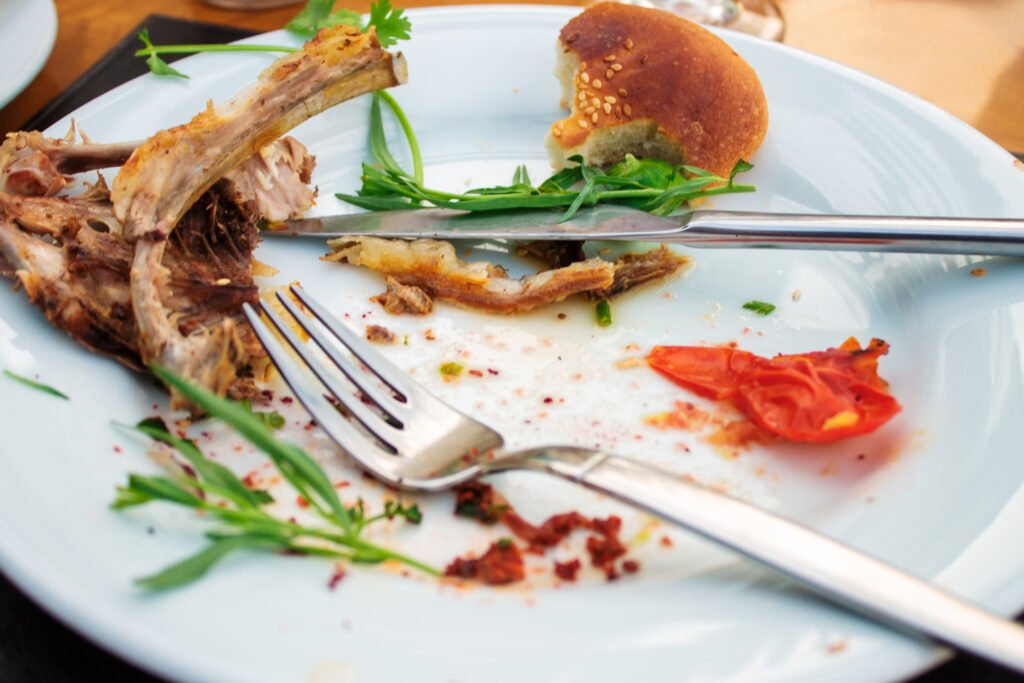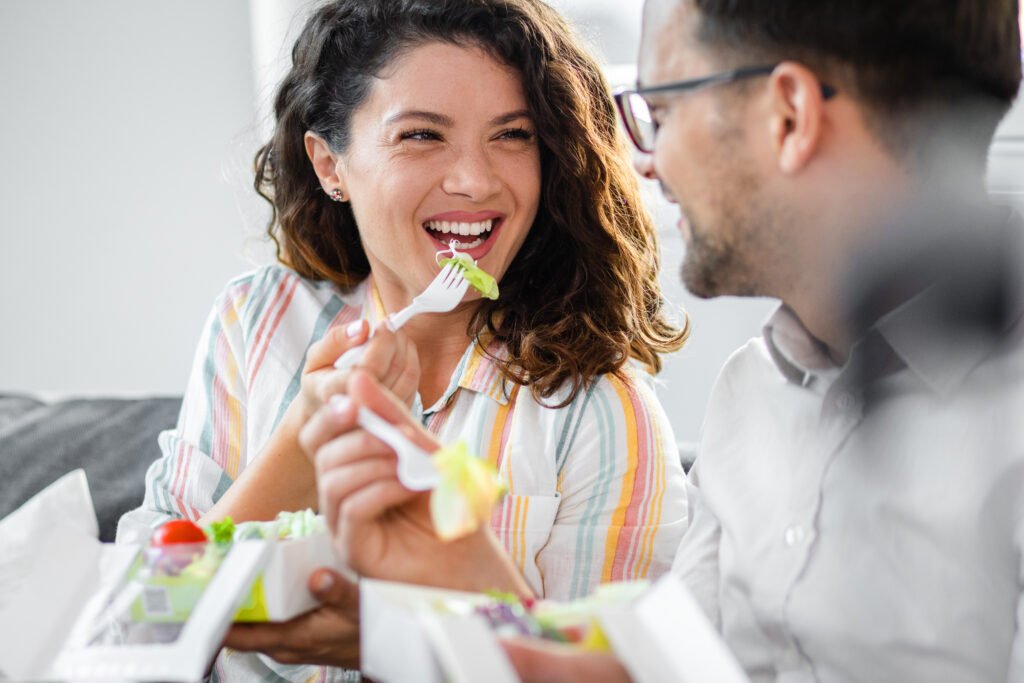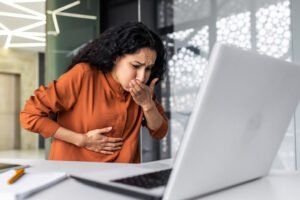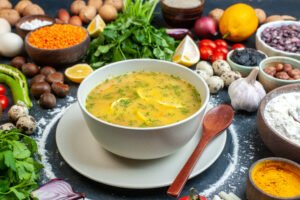
“Can food poisoning cause gastritis?” It’s a question that often elicits surprise from many.
Gastritis, a common condition marked by inflammation of the stomach lining, is typically associated with factors like spicy foods, stress, or alcohol consumption.
However, the link between food poisoning and gastritis is gaining recognition, prompting more people to delve into this connection.
Food poisoning, a widespread ailment, occurs when consuming contaminated food or water.
Bacterial, viral, or parasitic pathogens are the usual culprits behind this unsettling experience. Symptoms range from nausea and vomiting to diarrhea and abdominal pain, making it a formidable foe to reckon with.
Surprisingly, food poisoning can indeed lead to gastritis. The toxins released by harmful microorganisms wreak havoc on the delicate lining of the stomach, triggering inflammation and discomfort.
Seeking prompt medical attention for accurate diagnosis is crucial, as delayed treatment can exacerbate the condition and lead to complications.
Fortunately, there’s hope for relief.

Natural remedies and dietary supplements tailored for gastritis can offer significant alleviation.
From soothing herbal teas to targeted probiotics, these options provide gentle yet effective support for the irritated stomach lining.
In conclusion, while the connection between food poisoning and gastritis may catch many off guard, it’s essential to acknowledge its validity.
By staying informed and seeking timely medical advice, individuals can navigate this health concern with confidence and reclaim their comfort.
What Is Food Poisoning?
Food poisoning is a common and often unpleasant condition that occurs when you consume contaminated food or water. It’s typically caused by bacteria, viruses, parasites, or toxins that have contaminated the food.
These contaminants can multiply rapidly in food that is improperly stored, prepared, or handled, leading to illness when ingested.
10 Common Symptoms Of Food Poisoning
What are the 1st signs of food poisoning?
Food poisoning can manifest with a variety of symptoms, which typically appear within a few hours to a few days after consuming contaminated food or water.
Common symptoms include:
- Nausea: Feeling queasy or the sensation of needing to vomit.
- Vomiting: The forceful expulsion of stomach contents through the mouth.
- Diarrhea: Frequent, loose, or watery bowel movements.
- Abdominal cramps: Sharp or dull pains in the stomach or abdomen.
- Stomach pain: Discomfort or tenderness in the abdominal area.
- Fever: Elevated body temperature, often accompanied by chills.
- Headache: Aching or throbbing pain in the head.
- Muscle aches: Soreness or discomfort in the muscles.
- Fatigue: Feeling tired, weak, or lethargic.
- Dehydration: Reduced fluid levels in the body due to vomiting and diarrhea, leading to symptoms such as dry mouth, thirst, decreased urine output, and dark-colored urine.
Symptoms can vary in severity and duration depending on factors such as the type and amount of contaminant ingested, individual health, and immune response.
In some cases, particularly severe or prolonged cases of food poisoning may require medical attention, especially if dehydration, persistent vomiting, high fever, or other concerning symptoms occur.
If you suspect you have food poisoning or experience severe symptoms, it’s essential to seek medical care promptly for proper diagnosis and treatment.
Can Food Poisoning Cause Gastritis?
Yes, food poisoning can indeed cause gastritis.
Gastritis is characterized by inflammation of the stomach lining, and food poisoning can lead to this inflammation due to the presence of harmful bacteria, viruses, parasites, or toxins in contaminated food or water.
These contaminants can irritate and damage the delicate lining of the stomach, triggering an inflammatory response.
When you consume food contaminated with pathogens, these microorganisms can release toxins or cause direct damage to the stomach lining, leading to symptoms of gastritis such as abdominal pain, nausea, vomiting, and loss of appetite.
The severity of gastritis symptoms may vary depending on factors such as the type and amount of contaminant ingested, individual health, and immune response.
Seeking prompt medical attention for accurate diagnosis and treatment of food poisoning-related gastritis is crucial.
Delayed or inadequate treatment can exacerbate the inflammation and discomfort, leading to complications such as ulcers or chronic gastritis.
In some cases, gastritis caused by food poisoning may require medication to alleviate symptoms and promote healing of the stomach lining.
How Do You Heal Your Gut After Food Poisoning?
It’s essential to practice good food safety habits to reduce the risk of food poisoning and its associated complications, such as cooking foods thoroughly, washing fruits and vegetables, avoiding cross-contamination, and storing food properly.
Healing your gut after experiencing food poisoning involves gentle measures to soothe inflammation, restore balance to your digestive system, and promote overall gut health.
Here are some steps you can take:
- Stay Hydrated
Replenish lost fluids due to vomiting and diarrhea by drinking plenty of water, herbal teas, clear broths, or electrolyte-replenishing drinks. Hydration is crucial to help your body recover and prevent dehydration.
- BRAT Diet
Follow a bland diet initially, focusing on easily digestible foods like bananas, rice, applesauce, and toast (BRAT).
These foods can help settle your stomach and provide gentle nourishment as your digestive system recovers.
- Probiotics
Consider taking probiotic supplements or consuming probiotic-rich foods like yogurt, kefir, sauerkraut, or kimchi to restore beneficial gut bacteria. Probiotics can help rebalance your gut microbiota and support digestive health.
- Gradually Introduce Foods
Slowly reintroduce bland, easy-to-digest foods into your diet as your symptoms improve. Start with small portions and gradually increase the variety and complexity of foods as tolerated.
- Avoid Irritants
Steer clear of spicy, greasy, or heavily processed foods that may further irritate your stomach lining. Also, limit alcohol, caffeine, and acidic foods or beverages until your gut has fully healed.
- Herbal Remedies
Consider herbal remedies such as chamomile, ginger, or peppermint tea, which have soothing properties that can help alleviate digestive discomfort and inflammation.
- Rest and Relaxation
Give your body ample rest and relaxation to aid in the healing process. Stress can exacerbate digestive symptoms, so prioritize stress-reducing activities like meditation, deep breathing exercises, or gentle yoga.

- Medical Evaluation
If your symptoms persist or worsen, or if you develop severe symptoms such as persistent vomiting, high fever, or bloody diarrhea, seek medical attention promptly.
A healthcare professional can provide appropriate evaluation and treatment for your condition.
How Long Does It Take For Stomach Lining To Heal After Food Poisoning?
The good news is that the stomach lining itself is designed to be fairly resilient. In most cases of food poisoning, it doesn’t suffer lasting damage.
The irritation and inflammation caused by the culprit (bacteria, virus, etc.) usually resolves itself within a few days along with your symptoms.
The timeframe for full recovery depends on a few factors, but generally, the lining heals within:
- 12-48 hours: This is the typical recovery window for most healthy individuals with common food poisoning.
- Several days: In some cases, especially if diarrhea persists, it might take a little longer for everything to return to normal.
Here are some things that can help speed up healing:
- Hydration: This is crucial to prevent dehydration from diarrhea and vomiting.
- Bland diet: Easy-to-digest foods like toast, rice, and bananas help reduce further irritation.
- Probiotics: These supplements may help restore gut flora.
By following these measures and giving your body the time it needs to recover, you can typically expect your stomach lining to heal within a few days to a week after experiencing food poisoning.
Here are some supplements that may be beneficial:
- Probiotics
Probiotic supplements contain beneficial bacteria that can help restore balance to the gut microbiota, which may be disrupted during food poisoning.
Look for a probiotic supplement with strains such as Lactobacillus and Bifidobacterium.
- Digestive Enzymes
Digestive enzyme supplements can assist in the breakdown and absorption of nutrients, which may be impaired during gastritis.
Choose a supplement that contains enzymes such as amylase, protease, and lipase to support digestion.
- Deglycyrrhizinated Licorice (DGL)
DGL supplements derived from licorice root have been used traditionally to soothe gastrointestinal inflammation and promote healing of the stomach lining. DGL may help reduce symptoms such as heartburn and indigestion associated with gastritis.
- Slippery Elm
Slippery elm supplements contain mucilage, a gel-like substance that can coat and soothe the stomach lining, reducing irritation and inflammation. It may help alleviate symptoms such as abdominal pain and discomfort.
- Zinc Carnosine
Zinc carnosine is a combination of zinc and the amino acid carnosine, which has been shown to support gastric health and protect the stomach lining from damage. It may help promote healing and reduce symptoms of gastritis.
- Vitamin B12
Vitamin B12 supplementation may be beneficial for individuals with gastritis, as chronic inflammation of the stomach lining can impair the absorption of this essential nutrient.
Talk to your healthcare provider about whether vitamin B12 supplementation is appropriate for you.
- Fish Oil
Omega-3 fatty acids found in fish oil supplements have anti-inflammatory properties that may help reduce inflammation in the stomach lining associated with gastritis. Choose a high-quality fish oil supplement with EPA and DHA.
Can Food Poisoning Cause Permanent Gut Problems?
While food poisoning gastritis can cause significant discomfort and disruption to digestive health, it typically does not lead to permanent gut problems.
The stomach lining is designed to be resilient and can often heal itself after experiencing inflammation or irritation caused by food poisoning.
However, in rare cases or if left untreated, severe or recurrent episodes of gastritis related to food poisoning could potentially lead to complications that may affect digestive health in the long term.
These complications may include:
- Chronic Gastritis
Prolonged inflammation of the stomach lining can lead to chronic gastritis, a condition characterized by persistent irritation and inflammation.
Chronic gastritis may increase the risk of developing gastric ulcers or even stomach cancer over time if left untreated.
- Ulcers
In some cases, gastritis caused by food poisoning may lead to the development of ulcers in the stomach or small intestine. These ulcers can cause symptoms such as abdominal pain, bloating, and gastrointestinal bleeding if left untreated.
- Functional Gastrointestinal Disorders
Recurrent episodes of gastritis or food poisoning may contribute to the development of functional gastrointestinal disorders such as irritable bowel syndrome (IBS) or dyspepsia.
What Are Long-Term Effects Of Food Poisoning?
Potential long-term effects of gastritis caused by food poisoning include:
- Gastroesophageal Reflux Disease (GERD)
Chronic inflammation of the stomach lining can weaken the lower esophageal sphincter, allowing stomach acid to reflux into the esophagus, leading to GERD.
GERD can cause symptoms such as heartburn, chest pain, and difficulty swallowing, and may increase the risk of esophageal damage over time.
- Increased Risk of Gastric Cancer
Long-term gastritis caused by food poisoning may elevate the risk of developing gastric (stomach) cancer, particularly if the gastritis is associated with infection by Helicobacter pylori bacteria.
Chronic inflammation of the stomach lining can promote the growth of abnormal cells and increase the likelihood of cancerous changes over time.
It’s essential to seek prompt medical attention and follow recommended treatment protocols if you experience symptoms of gastritis or food poisoning to prevent potential long-term complications.
Additionally, adopting healthy lifestyle habits, such as maintaining a balanced diet, avoiding excessive alcohol consumption, and managing stress, can help support digestive health and reduce the risk of long-term effects.
Regular check-ups with a healthcare professional can also help monitor and address any ongoing concerns related to digestive health and gastritis.












